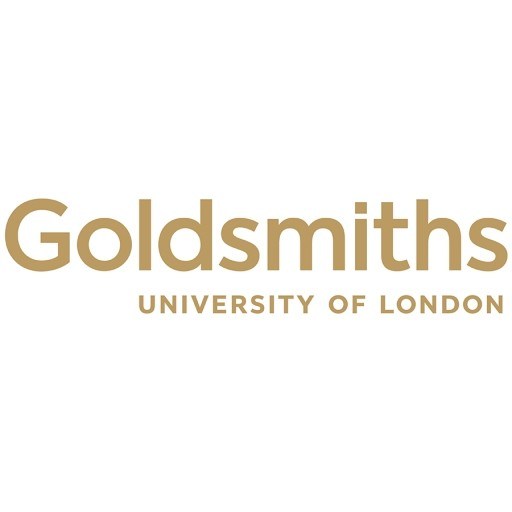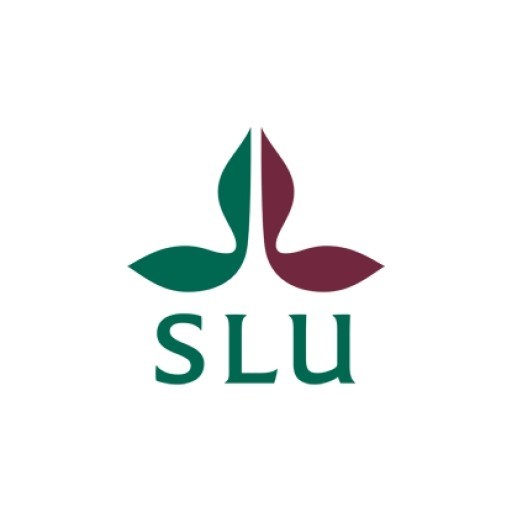Photos of university / #dundeeuni
The Bachelor of Science in Life Sciences at the University of Dundee offers students a comprehensive and versatile education in the fundamental aspects of biological sciences. This programme is designed to provide a strong foundation in various disciplines such as molecular biology, genetics, microbiology, physiology, and ecology, enabling graduates to pursue a wide range of careers in research, healthcare, environmental management, and biotechnology. Throughout the course, students will engage with both theoretical concepts and practical laboratory skills, preparing them for real-world applications and research opportunities. The curriculum is structured to encourage critical thinking, problem-solving, and independent learning, with modules that evolve in tandem with emerging scientific developments. In addition to core scientific knowledge, students will develop transferable skills including data analysis, scientific communication, and teamwork. The university's state-of-the-art laboratories and research facilities offer an ideal environment for hands-on learning and experimentation. The programme also emphasizes the importance of ethical considerations and sustainable practices in biological sciences. With close links to industry and research institutes, students will have access to professional development events, internships, and networking opportunities that enhance employability upon graduation. The diverse range of modules allows students to tailor their studies to specific interests within life sciences, from biomedical research to environmental conservation. The programme prepares graduands for further academic study or entry into various scientific careers, making it an excellent choice for motivated individuals passionate about understanding the complexities of life and contributing to advancements in science and healthcare.
Detailed Course Facts
Application deadline January 15th Tuition feeThe fees you pay will, in most cases, depend on your current country of residence.
The fee shown is annual, and may be subject to an increase each year.
Fee category
Fees for students starting September 2015
Scottish students
£1,820 per year of study (for Sept 2014 entry). Fees for September 2015 will be confirmed by the Scottish Government in early 2015.
Rest of UK students
Not applicable
EU students
£1,820 per year of study (for Sept 2014 entry). Fees for September 2015 will be confirmed by the Scottish Government in early 2015.
Overseas students (non-EU)
Not applicable
Not specified Start date September 2015 Course Starts in September Duration full-time 48 months Partnership Joint Languages Take an IELTS test- English
Course Content
This course is taught collaboratively in first year by the Dundee & Angus College Applied Sciences team and the University of Dundee Life Sciences team, based in the College of Life Sciences.
Our staff have many contacts in environmental management and consultancy, with expeditions and other academic units, all of which can be used to provide invaluable experience for students in their final-year projects.
What you will studyHonours Degree
An honours degree normally takes four years, full time, you study levels 1-4, as described below.
Typical Degree Programme
Visit the BSc overview page to learn more about our BSc programme.
Levels 1 and 2The first two years will provide you with a broad-based working knowledge and understanding of living organisms at all levels of organisation: from molecules and cells through tissues and organs to the organisms themselves and the ecosystems in which they live. In all cases, you will be encouraged to consider how evolution through natural selection has acted to shape the living and extinct organisms that you encounter in their studies.
Level 1
Compulsory modules at Dundee & Angus College:
- Presentation Skills in Science
- Statistics for Science
- Information Technology Applications Software 1
- Fundamental Chemistry: Theory and Practice
- Cell Biology: Theory and Practice DNA Structure and Function Microbiology: Theory and Practice
- Quality and Health & Safety Systems in Science Industries
- Applied Sciences: Graded Unit 1
- Biochemistry: Theory and Practice
Optional modules at Dundee & Angus College:
- Fundamental Chemistry: An Introduction
- Genetics
Optional modules at University of Dundee:
- Introduction to the Life Sciences: The Early Years
- Introduction to the Life Sciences: Why go multicellular?
- Life : Building the organism
- Life : The Underlying Structures
Level 2
Compulsory modules at the University of Dundee:
- The Evolution of Modern Life
- The Gene and the Cell
- Laboratory and Research Skills 2A
- Laboratory and Research Skills 2B
- Biomedical Sciences
- Biological Sciences
- Laboratory and Research Skills 2C
Optional modules at University of Dundee:
- Active Living
- Skills for Life Sciences
- Introductory Anatomy
Level 3
Level 3 (equivalent to SCQF 9) is based around two themes, the Biological Sciences and the Biomedical Sciences.
The Biological Sciences theme supports your development as a broader life scientist, and allows you to focus on current areas of research excellence in the College - many of these use the same principles and technologies to study different problems and, as the year progresses, you will be choosing which areas interest you more, and therefore which of several degree streams is best for you.
These include:
- biochemistry
- molecular biology
- molecular genetics
- microbiology
- biological chemistry
- drug discovery
The Biomedical Sciences theme prepares you for degrees in subjects in which subject-specific knowledge has a stronger role, while still being within the research excellence of the University, and which are focussed more on the human condition:
- anatomical sciences
- forensic anthropology
- neuroscience
- pharmacology
- physiological sciences
- sports biomedicine
At the end of Level 3, you may leave with a non-Honours degree in Biological or Biomedical Sciences, an excellent foundation for many careers.
Between Levels 3 and 4, you have the opportunity to take a year out of Dundee, either studying abroad, or on a full-time work placement. Both of these can give you a 'real world' perspective on your studies, while further developing your CV.
Level 4
Level 4 (equivalent to SCQF 10) continues the specialisation of Level 3, focussing strongly on your degree choice, and with a significant laboratory and skills element, through the Honours project and seminars and presentations. Because the Honours year is that much more challenging, entry to Level 4 from Level 3 requires a minimum grade average.
At the end of Level 4, you will either graduate with an Honours degree in a named single subject, or a more general Honours degree in Biological Sciences or Biomedical Sciences.
Specialisation in two subjects will be recognised in your degree title, for example BSc Biomedical Sciences (Pharmacology and Physiological Sciences). The title of your degree will reflect the specialist subject(s) you have studied and the project undertaken.
Integrated Masters (Level 5)We are currently developing the Level 5 curriculum, which will provide an opportunity for extensive development of your research and analytical skills in the subject area you feel most passionate about.
This level, the Integrated Masters, may consist of an extensive research project, coupled with in-depth analytical seminars and research training, which will prepare you for the world of biotechnology and pharmaceutical research, both in and out of the academic world; or it may focus on the specialist knowledge in e.g. anatomical or forensic sciences, that will prepare you to be a practitioner on graduation.
If you want to do the Masters year, you will need to achieve high scores throughout your studies, as progression into this part of the course will be competitive.
Transferable Skills
Throughout your scientific studies you will be developing transferable skills.
At Levels 1 to 3 you will be taught transferable skills, either embedded within the core curriculum, or as part of the pastoral and academic tutorial system. Your degree programme will involve a combination of independent learning and team work, through which you will develop your skills in information processing, use of computers, problem-solving, experimental design, analysis and critical evaluation of scientific literature, report writing, making presentations, communication and time management. These are important elements of all of our degree programmes, and they will help to ensure that you have the skills to make you attractive to a wide range of employers.
How you will be assessedAll modules are assessed by a combination of in-course and end-of-course procedures. Regular in-course assessments (e.g. practical reports, computer-based exercises, essays and data processing exercises) provide feedback on your progress and help you prepare for end-of-module examinations.
Progression to your chosen specialisation at level 3 will depend on your overall performance in each module.
Requirements
See Course Homepage for Full Details
Work Experience
No work experience is required.
Related Scholarships*
- Academic Excellence Scholarship
"The Academic Excellence Scholarship can provide up to a 50 % reduction in tuition per semester. These scholarships will be renewed if the student maintains superior academic performance during each semester of their 3-year Bachelor programme. The scholarship will be directly applied to the student’s tuition fees."
- Access Bursary
Bursary for UK students all subjects where the variable tuition fee rate is payable.
- Alumni Bursary
Alumni Bursary for UK Undergraduate students
* The scholarships shown on this page are suggestions first and foremost. They could be offered by other organisations than University of Dundee.
The Bachelor of Science (BSc) in Life Sciences at the University of Dundee is a comprehensive undergraduate program designed to provide students with a broad understanding of biological principles and their applications. The course encompasses various aspects of biology, including genetics, ecology, microbiology, biochemistry, and human biology, equipping graduates with the knowledge and skills necessary for careers in research, healthcare, environmental management, and education. The program is structured to offer a combination of theoretical learning and practical laboratory experience, ensuring students gain hands-on skills alongside their academic studies. Students have the opportunity to engage in research projects, work with state-of-the-art equipment, and develop critical thinking and problem-solving abilities. The curriculum is designed to be flexible, allowing students to specialise in areas such as molecular biology, pharmacology, or ecology, depending on their interests and career aspirations. The university's strong emphasis on employability means that students can benefit from internships, placements, and networking opportunities that enhance their professional development. The program also emphasizes interdisciplinary learning, encouraging students to understand the connections between biological sciences and other fields such as chemistry, environmental science, and health sciences. The duration of the course is typically three years for full-time students, with part-time options available in some cases. Graduates of the Life Sciences program at Dundee are well-prepared for postgraduate study or entering the workforce directly in roles related to biological research, health services, conservation, or biotechnological industries. The university's collaborative environment, access to research institutes, and strong links with industry provide students with a supportive and dynamic learning experience. Overall, the BSc in Life Sciences at Dundee offers a rigorous and engaging academic pathway for students passionate about understanding living systems and applying scientific knowledge to real-world challenges.










